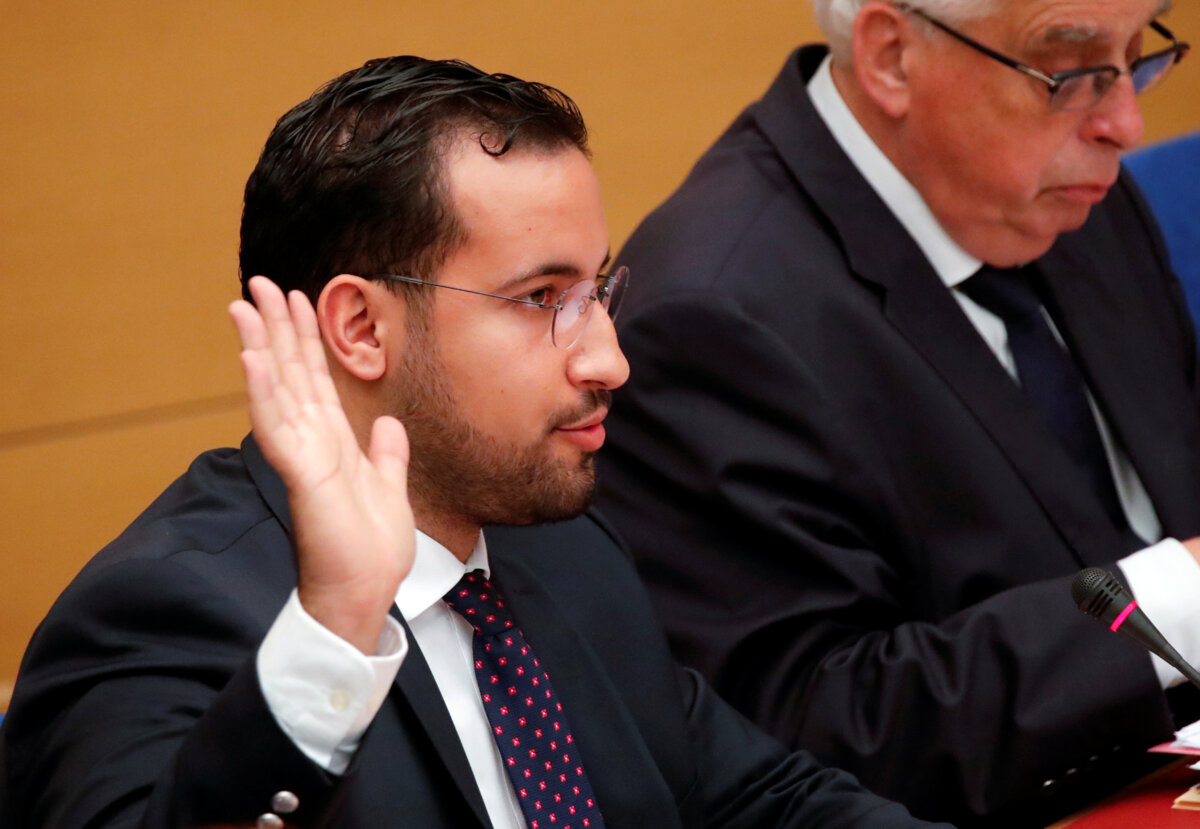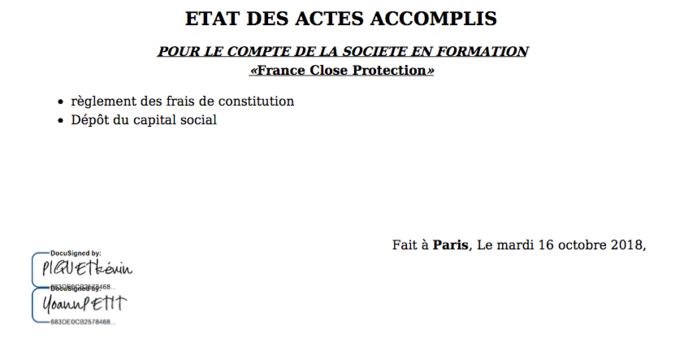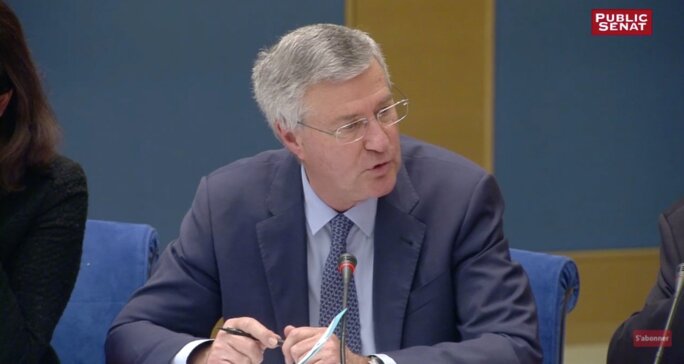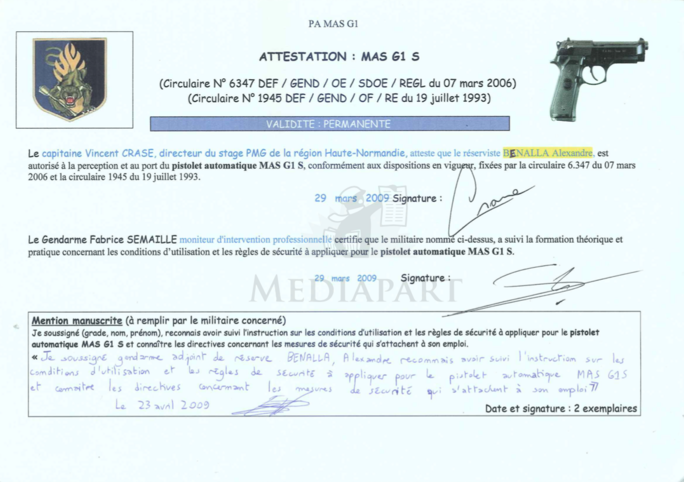The scandal surrounding President Emmanuel Macron’s former personal security aide Alexandre Benalla first erupted last summer when video footage was revealed in the media of Benalla and an associate, Vincent Crase, assaulting several people during disturbances at May Day marches in Paris earlier in the year, including punching and stamping on one victim.
At the time of those events, Benalla, 27, was Macron’s personal security aide, with the title of deputy to the president’s cabinet director Patrick Strzoda, while Crase was employed as a 'security and safety' manager for Macron’s ruling LREM party. Both men, who were officially present at the May Day marches as simple “observers” of policing methods, were also illegally wearing police insignia, including a helmet and armband. Following the revelations, Benalla and Crase were finally dismissed from their jobs.
Since last July the scandal has deepened significantly, beginning with the evidence of an initial coverup on high, but notably the revelations, led by Mediapart, that Benalla and Crase were involved in concluding contracts to provide personal security services to two Russian oligarchs close to the Kremlin, Iskander Makhmudov and Farkhad Akhmedov. Importantly, negotiations over the deals, worth a total of 2.2 million euros, began when Benalla was still in his post at the Élysée Palace.
Mediapart has also previously revealed how Benalla continued to possess several French diplomatic passports after his dismissal, when he furthered his security deals and worked as an “advisor” on international private business missions.

Enlargement : Illustration 1

Benalla is currently placed under investigation for the May Day assaults, but also for unauthorised use of the diplomatic passports, for the suspected destruction of potential evidence, for suspected corruption linked to the security deals with the Russian oligarchs, and also for suspected forgery.
In January, Emmanuel Macron’s presidential cabinet chief, Patrick Strzoda, testifying before a Senate commission of inquiry into the responsibilities behind the May Day events involving Benalla, said the latter “visibly, regularly uses false documents to obtain a certain number of official titles”.
Mediapart has identified several documents produced by Benalla which are suspected of being forged, detailed below, and has also obtained further details of lies he has told in the course of his professional activities in order to obtain advantages. They together raise yet more questions about his remarkable rise to prominence in the presidential office after serving as a bodyguard to Macrom during his election camapign.
- A falsified contract as advisor to businessman Philippe Hababou Solomon
The contract is dated October 11th 2018, and signed in blue ink with a trembling stroke of pen. It was an employment contract of unlimited duration (in French, a contrat à durée indéterminée, or CDI) is made out between Alexandre Benalla and Israeli businessman Philippe Hababou Solomon. The four-page document, obtained by Mediapart, established that Benalla was to be paid 10,000 euros per month for a weekly 40 hours of work as “personal advisor” to Solomon.
Benalla used the contract to justify payments totalling 15,000 euros he received from Solomon in October and November 2018. But questioned by Mediapart, Solomon said that he had never seen the contract before, describing it as a “vulgar forgery” that contained “false information”. Referring to the details in the contract about himself he said: “I was not born in Paris on 18/05/1955, I am not French but Israeli, the social security number is false, my address is false, it isn’t my signature.”
Solomon insisted that Benalla “has never been” his employee, and that if his services were to be employed it would be in the name of the businessman’s companies and not “at a personal level”. He added that he may use his “right to take up legal action over this document and against the author of this forgery”.
Solomon did however confirm to Mediapart that he had paid 15,000 euros into an account opened by Benalla with online bank Revolut, but that this was a loan and not a remuneration.
Mediapart asked graphologist Christine Jouishomme, president of the French association of experts in writing and documents which is officially recognised by France’s highest court, the Cour de cassation, for her opinion of the signature. Comparing it with other documents showing Solomon’s true handwriting and signature, she concluded that the signature on the contract was false. While she also concluded that Benalla’s handwriting appears throughout the contract, she was unable to conclude who had forged Solomon’s signature.
- More questions about signatures, this time concerning the company providing security services for a Russian oligarch.
As Mediapart has previously revealed, Alexandre Benalla is secretly active behind a company called France Close Protection, which last October obtained a contract to provide personal security services with Russian billionaire Iskander Makhmudov, worth a total of 980,000 euros. According to its official paperwork, the company was created by Benalla’s 18-year-old half-brother Kevin Piquet, and is presided by one of Benalla’s friends, a 44-year-old former French soldier called Yoann Petit. But according to graphologist Christine Jouishomme, on the company documents filed with the French commercial court (see below), the signatures of both men were signed by the same hand (using the online signature application DocuSign).

Enlargement : Illustration 3

Contacted by Mediapart, neither Piquet nor Petit replied to our questions as to whether they themselves validated and signed the company’s registration documents (articles of association).
- Benalla was accused by the Élysée of “regular” forgery to obtain documents, but strangely this discovery was only revealed after several months
“We are dealing with a gentleman who, visibly, regularly uses false documents to obtain a certain number of official titles,” said Emanuel Macron’s presidential cabinet chief, Patrick Strzoda, during questioning on January 16th by the French Senate’s commission of inquiry into the responsibilities surrounding Benalla’s conduct (violent assaults and illegal wearing of police insignia) during last year’s May Day marches. The statement is, at the very least, intriguing. Why did the presidential office, the Élysée Palace, give its protection over several months to former employee who, it readily now admits, “regularly” carried out forgeries?
Strzoda cited before the commission of inquiry one such possible “forgery” which he suggested would help the senators “define” Benalla’s personality. It consisted of an unsigned document bearing the cabinet chief’s letter heading which was sent to the interior ministry to obtain a second service passport – the term for a non-diplomatic passport but which is used by someone sent abroad on an official mission – and which was delivered to Benalla on June 28th 2018.

Enlargement : Illustration 4

“When we saw this document, of course the cabinet director was asked if it was he who addressed this document to the interior ministry – and he is not the person who wrote the note,” said Strzoda, speaking in the third person and under oath before the senators. “So, suspecting a falsification by Mr Benalla, we alerted the public prosecutor to the fact, by an article 40.”
Article 40 of the French penal code stipulates that, “Every constituted authority, every public officer or civil servant who, in the exercise of their duties, acquires the knowledge of a crime or offence is required to advise without delay the public prosecutor and to transmit to that magistrate all relevant information, statements or acts.”
However, that message to the public prosecutor referred to by Strzoda was only sent by the Élysée on the morning of that same day he was questioned by the Senate commission, namely January 16th this year – whereas Strzoda himself admitted during his testimony that the document suspected of being a forgery was made known to him “during the course of the autumn” of 2018.
Since January 16th, the brief of the judicial investigation opened into Benalla’s use of diplomatic passports – as well as service passports – has been widened to include suspected “forgery and use of forged administrative documents, and “undue obtention of an administrative document”.
- Lies and a traffic accident when Benalla was (briefly) employed at the economy ministry
In June 2012, immediately after the arrival in power of the socialist government following presidential and legislative elections, Alexandre Benalla, then aged 20, was employed as a chauffeur to the new French economy minister Arnaud Montebourg (whose official title was Minister of Industrial Renewal). Prior to that, Benalla had been employed as a bodyguard in the private security services of the Socialist Party, including during François Hollande's presidential election campaign.
But after serving just five weeks as Montebourg’s driver, he was sacked. In a letter to the administrative authorities demanding his dismissal, dated July 9th 2012, Montebourg’s chief of staff, Christophe Lantoine, cited professional misconduct that was far removed from the “discretion”, responsibility and temperance” required by his post (see the full text of the letter here). Lantoine also reported that Benalla had “claimed to have the minister’s backing for a request to the interior ministry for a permit to carry firearms, without the minister having been informed beforehand of this request”.
In his request to the interior ministry, Benalla included a certificate showing that he was trained in the use of an automatic pistol. The certificate was signed by gendarme Vincent Crase (see below) who would later become security manager for Emmanuel Macron’s LREM party, and who was dismissed after taking an active part with Benalla in the assaults against people on the sidelines of the May Day marches last year. By then a friend and associate of Benalla's, he was involved in the latter’s security deals last year with Russian oligarchs.

Enlargement : Illustration 5

Christophe Lantoine's letter justifying Benalla's dismissal also cited an incident when, one weekend, Benalla entered the economy ministry compound in the company – and in the car – of former French boxing champion Jean-Marc Mormeck “under cover of a supposed appointment with the minister, forcing the latter to issue a denial of the meeting”. A former member of Montebourg’s close staff told Mediapart of his surprise when he arrived at the ministry that day. “A Porsche was parked on the space reserved for the minister’s car [editor’s note, as opposed to the visitors’ car park],” he said, speaking on the condition that his name was withheld. “I asked the customs officer [a duty guard of the finance and economy ministry] what was going on. He told me, ‘It’s someone who has an appointment with the minister’. I knew very well where the minister was that day and that this person didn’t have an appointment with him. Benalla had the toys of the republic and he wanted to show it.”
Contacted by Mediapart, Jean-Marc Mormeck said that he had a lunch appointment that day with the then junior minister for the social economy, Benoît Hamon. “As I knew Alexandre, I called him and said ‘I’ve arrived, how do I get in?’. He knew the place, he wanted to get me in. I was with my car, he parked my Porsche.”
According to the former aide to Montebourg, cited above, problems began shortly after Benalla was hired as the minister’s chauffeur. He said that one weekend in June, Benalla used the ministerial car to make a trip to his hometown of Evreux, in lower Normandy, and had been recorded speeding above the legal limit. “I received the speeding ticket and I made him pay it, telling him: ‘That is a fault, I’m stopping you from doing that. When the minister’s not here you take your own car, not that of the minister. You’ve used up your joker card, next time things will be much harsher’. I think he didn’t understand, at that time, that my role was to protect Montebourg.”
Several weeks after that incident, Benalla was driving the minister in Paris one Saturday when he collided with another car close to the Gare de Lyon railway station, near the ministry. “It was the second time he drove me,” Arnaud Montebourg recalls today. “I was taken up with my files and my mobile. I found him a bit nervy, spending his time insulting people whereas the [ministerial] chauffeurs are generally impressive with their calmness. In my recollection, he hit a car by behind. I told him he should fill out a mutual report [with the other driver for insurance purposes], and he put his hand on my head saying ‘Hide yourself sir, hide yourself’. I told him that not only was I not going to hide myself but, above all, 'you’re going to stop and fill out a report, or if there’s nobody you leave your contact details because you’ve just caused damage', otherwise it’s a hit-and-run offence. He insisted and I told him ‘no, you do it like that’.”
Montebourg ended up continuing his journey on foot, “because I wasn’t in a position of security and I wasn’t happy with his attitude”. According to Montebourg, when he arrived back at his office, he told his cabinet chief: “You must fire this guy, he’s a madman, he’s dangerous for me.”
In the professional CV he filed for his job at the economy ministry (see document below), Benalla noted under the heading “Skills” the comments: “Close security protection and procedures for securing the safety of personalities”, as well as “management of conflicts and aggressiveity” and “difficult situations”.
The traffic accident incident with Montebourg led directly to Benalla’s dismissal. “It was the last straw,” said the former ministerial aide cited above, adding sarcastically: “But he was fired for the whole of his œuvre.” He added that Benalla did not challenge the facts or his dismissal. “It was no doubt the best dismissal I’ve ever made in my life,” he said. “I had in front of me a young guy who was very pleasant and who said to me, ‘Yes, I know, oh well, that’s how it is, thanks, goodbye’. He signed and we separated.”
However, when his time at the economy ministry resurfaced following the revelations last summer of the May Day violence he committed with Vincent Crase, Benalla told the Senate commission of inquiry into the events that he had not left the ministry “for the reasons that have been put forward”. Speaking to the press, Benalla claimed that he had been fired over a falling out with Montebourg because the minister wanted to ride a bicycle (from the Paris public bicycle share scheme Vélib') on the Paris ringroad.
That version of events was reported by gossip magazine Closer last July, and subsequently, in October, by the weekly Valeurs actuelles, while both Montebourg and his former aide have firmly denied the story. “This guy is mad,” said Montebourg. “I have never ridden a bicycle on the ringroad. You can imagine that a minister has better things to do.”
“Imagine Montebourg on a Vélib' on the ringroad,” commented his former aide. “At a time of smartphones there would have been a photo, at least. It’s a proper lie.”
“Benalla is a Rocancourt of politics,” added the former aide, referring to flamboyant French fraudster Christophe Rocancourt. “Very pleasant, agreeable, instinctive, with this ability of seduction in whatever environment he finds himself in, and to tell stories that are so well constructed – at least at the beginning – that nobody checks and everyone thinks they’re true, especially because he’s well introduced among high circles. Yesterday, it was in the political domain, tomorrow it might be in the world of business […] He was blacklisted at Bercy [the French economy and finance ministry] but he reached the Élysée. Macron is a victim of his entourage who didn’t protect him sufficiently.”
Contacted by Mediapart, neither Alexandre Benalla nor his lawyer, Jacqueline Laffont, responded to Mediapart’s questions.
-------------------------
If you have information of public interest you would like to pass on to Mediapart for investigation you can contact us at this email address: enquete@mediapart.fr. If you wish to send us documents for our scrutiny via our highly secure platform please go to https://www.frenchleaks.fr/ which is presented in both English and French.
------------------------------------------------------------------------------
- The French version of this article can be found here.
English version by Graham Tearse


